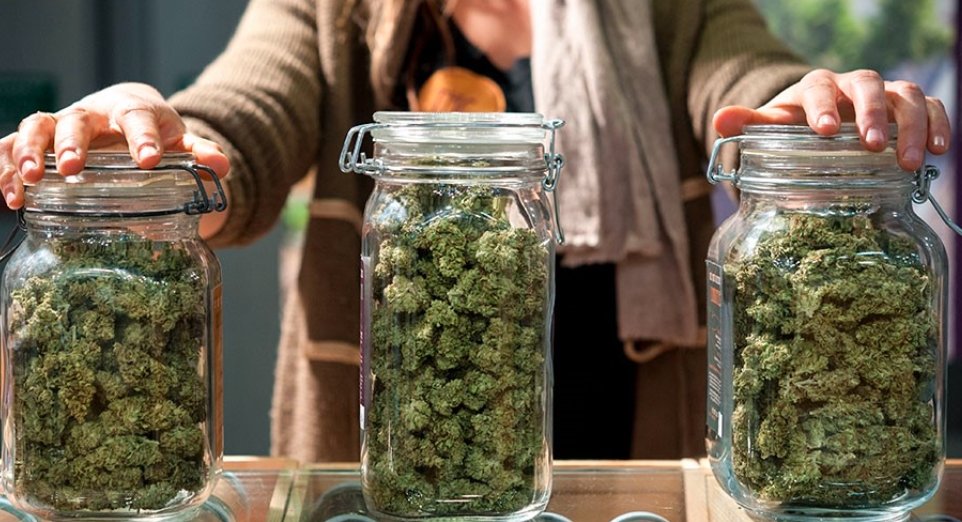The cannabis industry is facing a challenge of accurately labeling the THC potency of its products, as some producers and testing labs are inflating the numbers to attract customers and increase sales. THC inflation is a term that refers to the practice of reporting higher THC levels than the actual ones, either by manipulating the samples, cherry-picking the flowers, or lab shopping for favorable results. This can have negative impacts on consumers, regulators, and the industry as a whole, as it creates distrust, confusion, and potential health risks.
What is THC and Why Does It Matter?
THC, or tetrahydrocannabinol, is the main psychoactive compound in cannabis that produces the high sensation and other effects. THC potency is measured by the percentage of THC by dry weight in a cannabis product, such as flower, vape, edible, or concentrate. THC potency is one of the main factors that determine the price, quality, and demand of cannabis products, as consumers often seek higher THC levels for stronger and longer-lasting effects.
However, THC potency is not the only factor that affects the experience and benefits of cannabis consumption. Other factors, such as the terpene profile, the cannabinoid ratio, the consumption method, the dosage, and the individual tolerance, also play a role in shaping the effects of cannabis. Moreover, higher THC levels do not necessarily mean better quality or more desirable outcomes, as they can also cause adverse effects, such as anxiety, paranoia, psychosis, and vomiting, especially for inexperienced or sensitive users.
How Prevalent and Harmful is THC Inflation?
THC inflation is a phenomenon that has been observed and reported in both the U.S. and Canada, where cannabis is legal for medical and/or recreational purposes. According to a recent study published in PLOS ONE, THC inflation was found in 23 samples from 10 dispensaries in Colorado, where the average observed THC potency was 23.1% lower than the lowest label reported values and 35.6% lower than the highest label reported values. The study also found that about 70% of the samples were more than 15% lower than the THC potency numbers reported on the label, with three samples having only half of the reported maximum THC potency.

THC inflation has also been acknowledged by some cannabis producers in Canada, such as Organigram Holdings, which stated in a press release that it had to adjust its growing conditions and pricing to remain competitive in the face of THC inflation, which was done by some producers through various methods, such as cherry-picking, sample manipulating, and lab shopping. The company also called for more rigorous testing standards and regulatory oversight from Health Canada, as the current system does not prescribe specific and consistent procedures for cannabis testing.
THC inflation can have serious implications for the cannabis industry and its stakeholders, as it undermines the credibility, transparency, and safety of the products and the market. THC inflation can also mislead consumers, who may end up paying more for less potent products, or consuming more than they intended or needed, resulting in unpleasant or harmful effects. THC inflation can also pose challenges for regulators, who may have to deal with complaints, disputes, and enforcement issues, as well as for medical patients, who may have difficulty controlling their dosage and treatment.
How Can Deli-Style Cannabis Help Address THC Inflation?
One possible solution to the problem of THC inflation is to adopt a deli-style approach to selling cannabis, where consumers can see, smell, and choose the exact amount and type of cannabis they want, instead of relying on pre-packaged and pre-labeled products. Deli-style cannabis is a concept that has been proposed and practiced by some cannabis retailers and advocates, who argue that it can offer more variety, flexibility, and transparency to consumers, as well as more value, quality, and sustainability to the industry.
Deli-style cannabis can help address THC inflation by allowing consumers to inspect and select the cannabis products they want, based on their own preferences and needs, rather than on the THC potency numbers on the labels. Deli-style cannabis can also help consumers to learn more about the different strains, terpenes, and cannabinoids that affect the cannabis experience, and to experiment with different combinations and dosages, under the guidance of knowledgeable and trained staff. Deli-style cannabis can also help reduce waste, packaging, and costs, as consumers can buy only what they need and use, and pay by weight, rather than by potency.
Deli-style cannabis is not a new or novel idea, as it resembles the traditional way of buying and selling cannabis in the black market or in the medical dispensaries, before the legalization and commercialization of cannabis. However, deli-style cannabis may face some challenges and barriers in the current legal and regulated cannabis market, such as the compliance with the health and safety standards, the availability and affordability of the testing equipment and personnel, the consumer education and awareness, and the market demand and competition.
THC inflation is a serious issue that affects the cannabis industry and its consumers, as it creates distrust, confusion, and potential harm. THC inflation can be addressed by improving the testing and labeling standards and regulations, as well as by adopting a deli-style approach to selling cannabis, where consumers can see, smell, and choose the cannabis products they want, based on their own preferences and needs, rather than on the THC potency numbers on the labels. Deli-style cannabis can offer more variety, flexibility, and transparency to consumers, as well as more value, quality, and sustainability to the industry.



